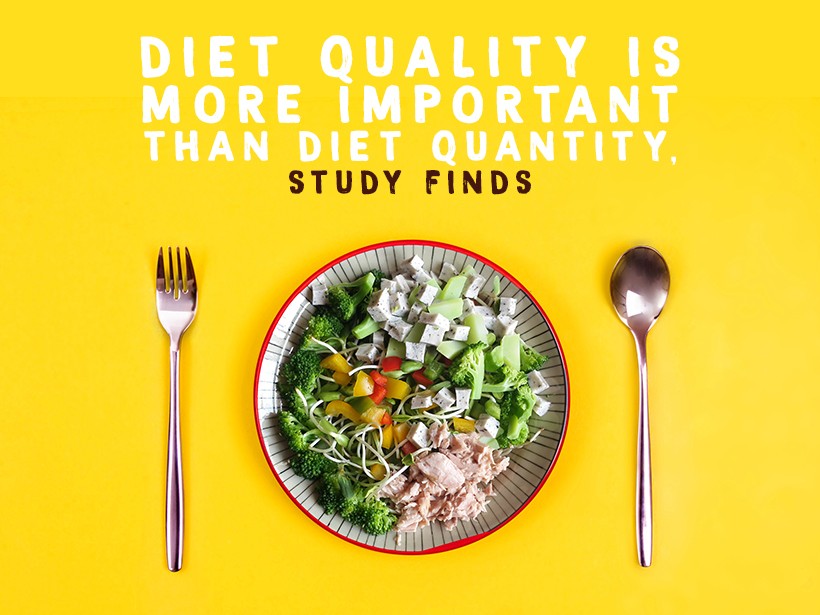When it comes to diet, one of the most widely understood rules is that caloric intake matters. The recipe of calories in versus calories out has been the standard for weight loss for as long as we can remember. One of the greatest struggles in dieting is the battle we have overcoming limitations – like caloric restriction – which can make us feel miserable.
However, a recent study published in the Journal of the American Medical Association found that those who chose whole foods and plenty of vegetables, while reducing sugar intake, processed foods and refined carbohydrates, lost weight without the need to control portions or count calories.1
A Study of Practical Dieting
In the study, led by Christopher D. Gardener, the Director of Nutrition Studies at the Stanford Prevention Research Center in California, 609 overweight adults were observed over the course of 12 months. The intent of the study was to assess whether genetic makeup had a greater impact when certain diet types were chosen.
The participants were placed on either a low-fat diet or a low-carbohydrate diet and were given a detailed plan to follow. Both plans included easy to follow, but nutrient-rich meal plans consisting of mostly whole foods. Unlike other studies, which focus on restricting calories, carbohydrates, or fats, the study by Dr. Gardener and his team focused solely on educating participants to make nutritious, whole foods choices.
For those on the low-fat diet, this included choices like quinoa, lentils, fresh fruits and low-fat dairy. The low-carbohydrate dieters were instructed to consume healthy whole foods like avocado, nut butters, grass-fed protein sources, and olive oil.
Calories and Portions Don’t Matter
When the study concluded, both groups lost a fairly equal amount of weight. The low carbohydrate dieters averaged a weight loss of just over 13 pounds, while the low-fat dieters lost nearly 12 pounds on average. Additionally, no correlation between genetics and diet-type were found – which goes against the recent trend of assessing genetics in order to custom design weight loss diets.
Rather than identify genetics as a factor in weight loss though, one thing from the study was very clear. Regardless of which diet group the participants were placed in, portion size and counting calories was not a driving force in their weight loss success. The simple act of focusing on nutrient-dense, whole foods was enough to aid them in achieving their goals.
Breaking the Trend in Dieting
There are two important details to note in this study. The first is that, when assessing the participants’ food journals, researchers did notice that many participants ended up eating fewer calories each day toward the end of the study. However, this is not something the dieters were consciously aware of while they continued to focus on eating whole foods.
The second interesting thing is that, while participants in the “low-carb” group did indeed decrease their carb intake, they did not do so to the point where the entered ketosis. One can only wonder how much more effective their weight loss experience would have been if they had switched metabolic pathways to burning stored fat regularly rather than simply decreasing the amount of fat they were adding through the intake of additional carbohydrates, even if those carbs were healthier than ones they had previously consumed.
By building a strong foundation and healthier habits using whole foods and foods packed with great nutrition, this study shows it doesn’t take misery in order to lose weight – simply a commitment to improving the way we eat.
NUTRITIONAL DISCLAIMER
The content on this website should not be taken as medical advice and you should ALWAYS consult with your doctor before starting any diet or exercise program. We provide nutritional data for our recipes as a courtesy to our readers. We use Total Keto Diet app software to calculate the nutrition and we remove fiber and sugar alcohols, like erythritol, from the total carbohydrate count to get to the net carb count, as they do not affect your blood glucose levels. You should independently calculate nutritional information on your own and not rely on our data. The website or content herein is not intended to cure, prevent, diagnose or treat any disease. This website shall not be liable for adverse reactions or any other outcome resulting from the use of recipes or recommendations on the Website or actions you take as a result. Any action you take is strictly at your own risk.
- Scottish Government: ‘Obesity Will Be One Of The Great Public Health Challenges Of Our Time’ - September 5, 2018
- Virta Health’s Use of Telemedicine to Treat Diabetics with Keto - September 3, 2018
- New MyProtein Nutrition Bar Disrupts Nutrition Standards - May 24, 2018




